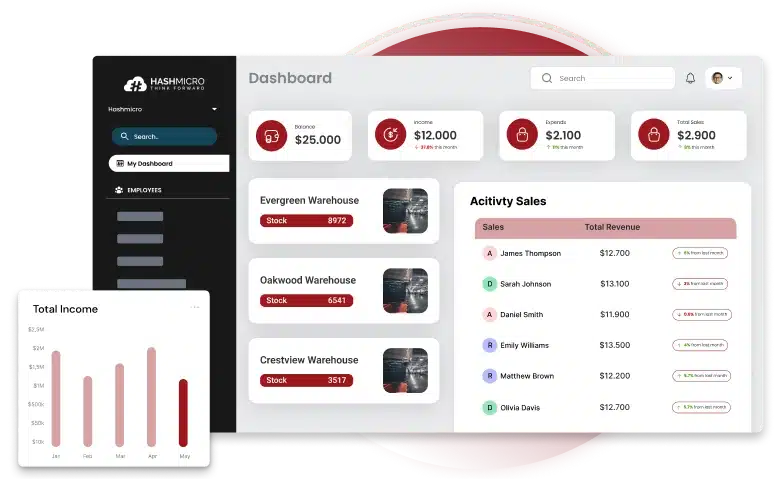Implementing ERP systems is crucial for streamlining operations in Singapore’s rapidly evolving economy. From my experience, the real challenge is deciding between the big bang or phased method to ensure a smooth rollout.
I view ERP systems as more than just software; they integrate finance, HR, supply chain, and customer management into a seamless flow. With real-time insights, they empower businesses to cut inefficiencies and grow smarter.
But rolling out ERP isn’t as simple as flipping a switch. I’ve learned that success depends on careful planning, evaluating a company’s readiness, and adapting to the unique challenges that Singaporean businesses face.
Key Takeaways
|
Understanding ERP Implementation Strategies
When implementing an ERP system, Singaporean businesses can choose between the Big Bang and the Phased Approach. Each has unique benefits and challenges. Understanding them is key to a successful rollout.
Big Bang Approach: This strategy rolls out the ERP across all departments at once. It delivers a quick transformation but comes with high impact and risk.
Phased Approach: This method introduces ERP in stages, often department by department. It allows gradual adaptation and is easier to manage.
Both approaches have trade-offs. The Big Bang offers speed and immediate results, but requires a high investment and carries a greater risk. Phased takes longer but minimizes disruption and supports smoother adoption.
When choosing, Singaporean businesses must weigh factors like size, complexity, budget, and readiness for change. It’s also crucial to involve stakeholders, assess risks, allocate resources wisely, and address market conditions and regulatory requirements.
Both the Big Bang and Phased approaches need ongoing support, training, and customization for long-term ERP success. Post-implementation reviews are crucial for tracking progress. Continuous improvement ensures the system remains optimized and aligned with emerging technologies.
In the next section, we will examine the advantages and disadvantages of the Big Bang Implementation strategy.
Pros and Cons of Big Bang Implementation

The big bang approach delivers quick transformation and immediate benefits. By rolling out ERP across the entire organization, businesses can see significant improvements fast.
However, this method carries a higher risk of disruption. Implementing changes all at once may disturb workflows and cause temporary setbacks. Careful management is needed.
It also requires a substantial upfront investment. Costs include software, hardware, training, and customization, making it a major financial commitment.
Weigh the speed and benefits against the risks and costs. A thorough review of business needs, readiness, and available resources is essential for making informed choices.
Pros and Cons of Phased Implementation
When implementing an ERP system in your Singaporean business, the phased approach has its own set of advantages and disadvantages.
Lower Immediate Risk
A key benefit of the phased approach is its lower immediate risk compared to big bang. Rolling out ERP in stages helps reduce disruptions. This ensures a smoother and more controlled transition for business operations.
Gradual Adaptation
The phased approach allows for gradual adaptation to the new ERP system. This means that your employees can adjust to the changes at a comfortable pace, minimizing resistance and maximizing the effectiveness of the implementation.
Prolonged Implementation Period
The phased approach takes longer than the big bang method. Since the system is introduced gradually, full benefits are delayed. Businesses must be patient to see organization-wide results.
Potential for Initial Inefficiency
Another factor in phased implementation is the risk of initial inefficiency. As the system rolls out in stages, departments may face temporary gaps. Careful monitoring is vital to resolve challenges and ensure a smooth transition.
The phased approach offers lower risk and smoother adaptation to ERP. However, it requires more time and may cause early inefficiencies. Businesses should weigh these factors before choosing the best ERP software in Singapore.
Key Considerations for Singaporean Businesses

When it comes to implementing an ERP system, Singaporean businesses have several key considerations to keep in mind. These considerations include:
- Business Size: Assessing the size of your business is essential in determining the scale and complexity of the ERP implementation.
- Complexity: Consider the complexity of your business processes and operations. The level of complexity will influence the choice between a big bang or phased approach.
- Budget Constraints: Evaluate your budget constraints and determine the financial resources available for the ERP implementation.
- Readiness for Change: Assess the readiness of your organization and employees for change. Implementing an ERP system often requires a shift in processes and workflows.
- Long-term Business Goals: Align the ERP implementation strategy with your long-term business goals to ensure it supports your growth and expansion plans.
- Unique Challenges: Recognize and address the unique challenges faced by Singaporean businesses, such as the diverse industries and regulatory landscape.
- Stakeholder Engagement: Engage key stakeholders throughout the implementation process to ensure their buy-in, collaboration, and support.
- Risk Assessment: Conduct a comprehensive risk assessment to identify and mitigate potential risks associated with the ERP implementation.
- Resource Allocation: Allocate the necessary resources, both human and financial, to ensure the success of the ERP implementation.
- Market Conditions: Consider the current market conditions and how they may impact the implementation and usage of the ERP system.
- Regulatory Requirements: Take into account the specific regulatory requirements that apply to Singaporean businesses and ensure compliance throughout the implementation.
By carefully considering these factors, Singaporean businesses can make an informed decision when choosing between the big bang and phased approaches for ERP implementation.
Success and Adaptation
Once your ERP system is implemented, the journey toward success begins. A post-implementation review is crucial for measuring effectiveness and identifying areas for improvement. This ensures the system aligns with objectives and boosts efficiency.
Continuous improvement maximizes the benefits of ERP as technology evolves. Regular updates, enhancements, and system integrations are needed to maintain seamless operations. Staying adaptive ensures long-term performance and competitiveness.
Ongoing support addresses issues and equips teams with proper training. Customization may be required to fit unique business needs. Together, these efforts keep the ERP aligned with workflows and goals.
In summary, ERP success depends on review, improvement, support, training, and customization. By focusing on these areas, businesses can maximize their benefits and stay ahead in Singapore’s market.
Why HashMicro ERP Software is the Right Choice for Your Implementation Journey

Choosing the right ERP software is as crucial as the strategy itself. HashMicro ERP supports both big bang and phased rollouts for a smooth transition. Its flexibility and features make it ideal for Singaporean businesses seeking growth.
Below are the key features that align with your chosen implementation method:
- Built-in BI: Gain real-time insights with integrated business intelligence tools for smarter decision-making.
- AI Integrated: Automate processes and enhance accuracy with AI-driven capabilities.
- Mobile Access: Manage operations anytime, anywhere through a secure mobile platform.
- Inter-Divisional Report Access: Seamlessly share and access reports across departments to boost collaboration.
- Business Metric Analysis: Track and analyze key performance metrics to monitor progress and drive growth.
Conclusion
Choosing between the big bang and phased methods depends on your business priorities and risk tolerance. While the big bang offers speed, the phased approach provides gradual control and stability.
With the HashMicro ERP System, Singaporean companies gain a powerful solution that adapts to either implementation strategy. Its integrated modules, automation, and AI features ensure efficiency across all business functions.
To truly see the difference, I encourage you to experience HashMicro ERP firsthand. Request a free demo today and discover how it can transform your operations with confidence.

FAQ About Big Bang vs Phased Approach
-
Which is faster: big bang or phased implementation?
The big bang method is faster because the entire ERP system goes live at once. However, this speed comes with higher risks if issues occur during the transition.
-
Why do some businesses prefer the phased approach?
Many companies choose phased implementation because it enables them to roll out modules in a step-by-step manner. This minimizes disruption and gives teams time to adapt gradually.
-
Which method is better for Singaporean businesses?
The choice depends on business size, resources, and readiness for change. Larger, more complex organizations often benefit from phased rollouts, while smaller firms may succeed with a big-bang approach.































